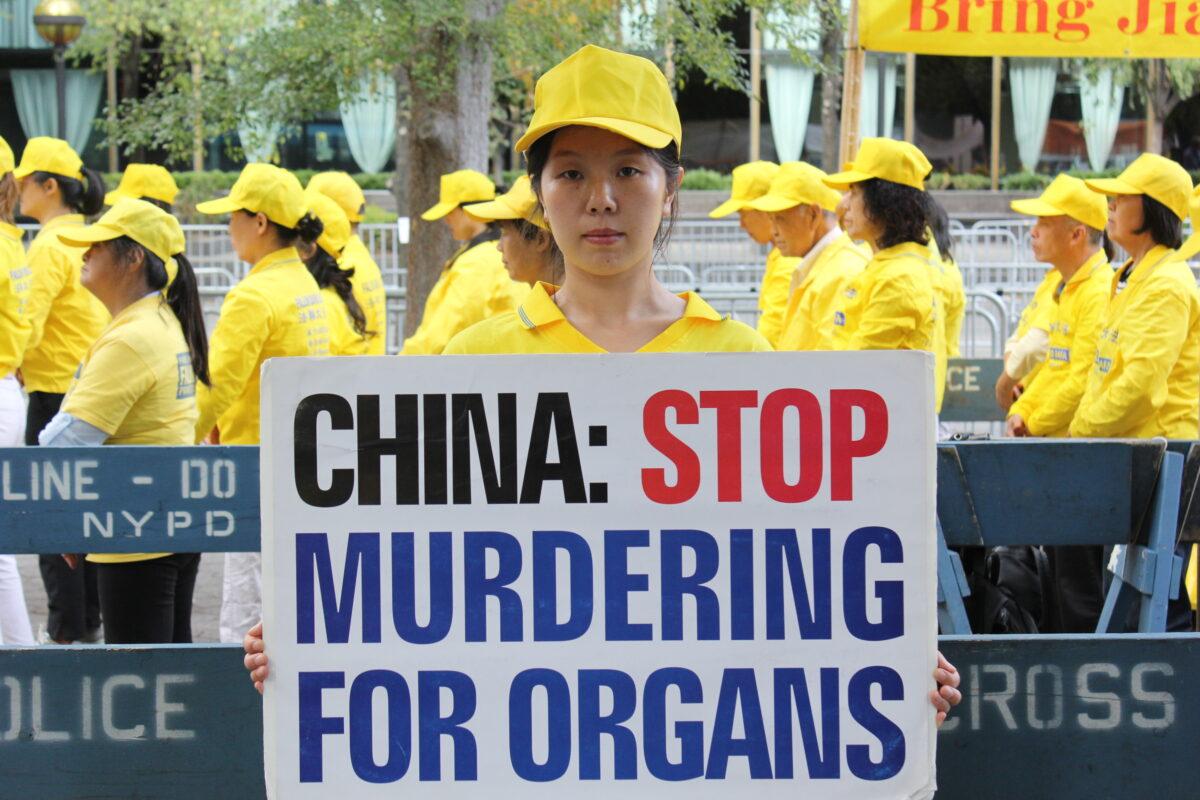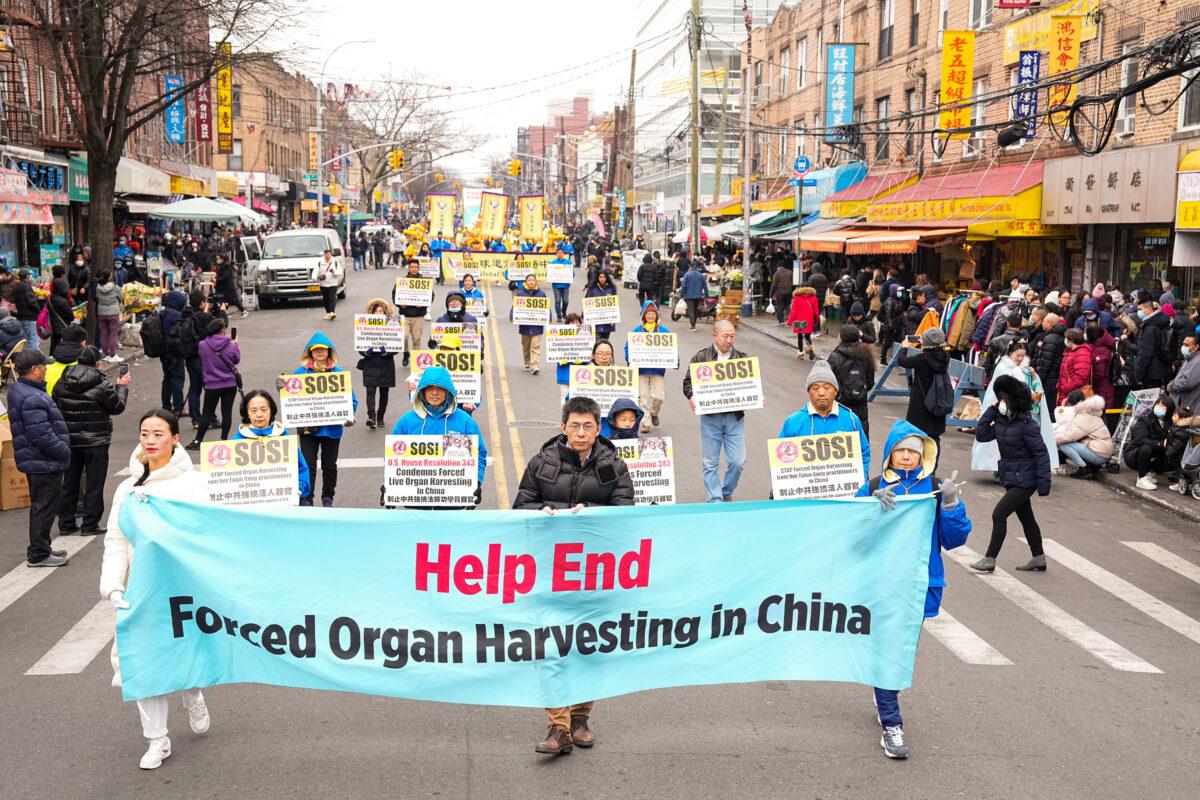The House of Representatives on March 27 overwhelmingly passed a bill to punish communist China for its forced organ harvesting from prisoners of conscience, marking the first nonsymbolic legislative measure in the United States to counter the atrocity.
Rep. Chris Smith (R-N.J.), the principal sponsor of the bill, called attention to the penalties in the bill for those found to be involved in forced organ harvesting: a civil penalty of up to $250,000 and a criminal penalty of up to $1 million and 20 years in prison.
“It’s got real teeth. We’re not kidding,” Smith told The Epoch Times ahead of the floor vote. “This is an atrocity, this is a crime against humanity, and it’s a war crime, because this is a war on innocent people in China, and [Chinese leader] Xi Jinping is directly responsible. Those who willingly engage in this will be held responsible.”

On the House floor, Rep. Susan Wild (D-Pa.) highlighted the annual reporting requirement in the bill, which she said would ensure that the United States makes “an informed assessment regarding the magnitude and prevalence of this problem.”
“Given the ongoing genocide, we cannot take Beijing at its word about what it is and is not doing,” she said. “We need to investigate and we need to verify.
Haunting Memories
The news of the bill’s passage was heartening for many survivors of the regime’s persecution who have escaped to the United States for refuge, as in the case of Han Yu, an adherent of Falun Gong. Practitioners of the spiritual discipline have been named as the primary victims of the regime’s illicit organ trade.
The spiritual practice, which includes moral teachings based on the principles of truthfulness, compassion, and tolerance, along with five meditative exercises, enjoyed significant popularity for its health and moral benefits in China in the 1990s, eventually attracting an estimated 70 million to 100 million practitioners by the end of the decade.
A native of Beijing, Han was 19 when she lost her father to persecution in 2004, two years before the first reports of the regime’s secretive organ trade industry. More than a decade would pass before the issue became more widely recognized.
The last image she has of her father, Han Junqing—who died just a little more than two months after his arrest for practicing Falun Gong—still haunts her to this day.

Han Yu’s breathing grew heavier as she recounted those memories from nearly two decades ago.
Extremely thin, with a face bruised green and purple, her father’s body lay cold in a forensic center room surrounded by dozens of uniformed officers.
There was tissue missing from under the man’s left eye. A long knife incision, sewn together with black thread, extended down from his throat. The police forced her out when she tried to unbutton his shirt to see where the stitches ended.
‘A Crime Never Seen Before’
Han for a long time struggled to accept the loss of her father. She dreamed of him often and would wake up in tears, she told The Epoch Times.That night, Han cried for hours.
The story of Jiang Li, the daughter of a persecution victim in southwest China’s Xishanping Labor Camp, is similar.
Her father, Jiang Xiqing, a retired official at a local tax bureau in the megacity Chongqing, was arrested after a house raid in May 2008—three months before Beijing hosted its first Olympics—and was given a one-year sentence to a labor camp without trial.

He died in late January the following year, less than 24 hours after a family visit during which he appeared healthy.
After seven hours in the freezer, the man’s face and chest were still warm, but when Jiang Li and other family members tried to call attention to the matter, police pushed them out of the morgue. Police cremated the body days later and threatened and harassed the family when they sought to get to the bottom of the matter, at one point telling Jiang Li to “name any price” to settle the case. A Chongqing procuratorate official, Zhou Bailin, told them that all of Jiang Xiqing’s organs had been “removed and turned into medical specimens.”
They never sought the Jiang family’s approval, nor was there any explanation.
“Harvesting organs from living people is a crime never seen before on this planet, and it’s still happening,” Jiang Li, who now lives in New York, told The Epoch Times. Her hope, she said, is to see the U.S. government help “immediately stop such crime against humanity, hold the Chinese Communist Party and all perpetrators accountable, and purge the state-run machinery that’s still committing the crime.”

‘Major Step Forward’
Torsten Trey, executive director of the medical ethics group Doctors Against Forced Organ Harvesting, welcomed the bill as a “major step forward” in helping to “raise critical awareness” about forced organ harvesting but believes that more measures are necessary to curb medical tourism to China.“The bill takes advantage of our legal system and applies existing mechanisms to demonetize or ban those who participated in these crimes against humanity,” he told The Epoch Times in an email.
What is missing, he wrote, is a requirement for all who enter the United States—whether immigrants or U.S. citizens—to answer whether they have “‘imported’ a newly transplanted organ from countries that are known to procure organs through forced organ harvesting” and the amount of money paid for the organs.
“Organ harvesting is a crime,” he wrote. Although patients have the right to privacy, that privacy “should end at the crimes of forced organ harvesting: If Falun Gong practitioners or other prisoners of conscience have been killed for their organs in China, we should not cover up these crimes under the umbrella of health care privacy.”
Smith, the New Jersey congressman, said the bill could cover anyone who participates in forced organ harvesting, including patients who receive the organs.
“If there’s willful knowledge that is being stolen from a Falun Gong practitioner, or anyone else, then they could be held criminally and civilly liable,” he said.
“How do you know on a certain date, you’re going to have a liver all ready to go? That’s because they kill the individual in order to get that. They murdered them,” he added, referring to instances of Chinese hospitals promising to deliver vital organs on a specified date—something impossible in voluntary organ donor systems.
Smith emphasized that there’s also a moral onus on Americans going to China for organ transplants to find out more about the source of the organs.
Israel, Taiwan, Italy, and Spain have already banned organ transplant tourism.
But if the Stop Forced Organ Harvesting Act becomes law, that would be one step toward that change, according to Levi Browde, executive director of the Falun Dafa Information Center.
“With this bill, our Congress is joining lawmakers from several other countries who have passed laws aimed at stopping the horrific practice of murdering innocent people for their organs, and punishing those who continue to do so,” Browde said in a statement to The Epoch Times.
He urged the Senate to pass the companion legislation.
“Despite all the economic and political pressure exerted by the CCP over the years, through this act, the U.S. government is officially, on the world stage, calling out the CCP for murdering people for organs,” he said.





